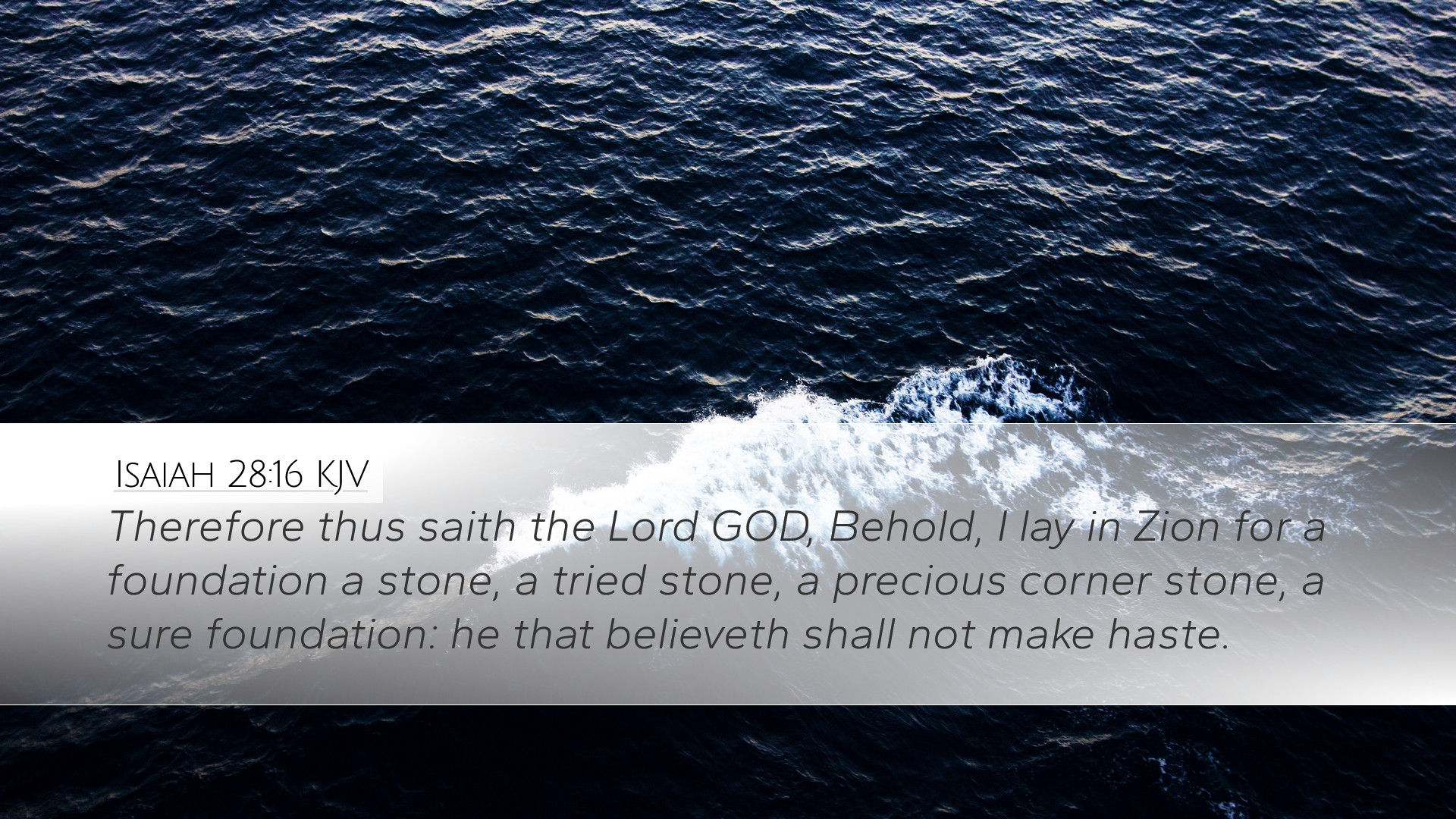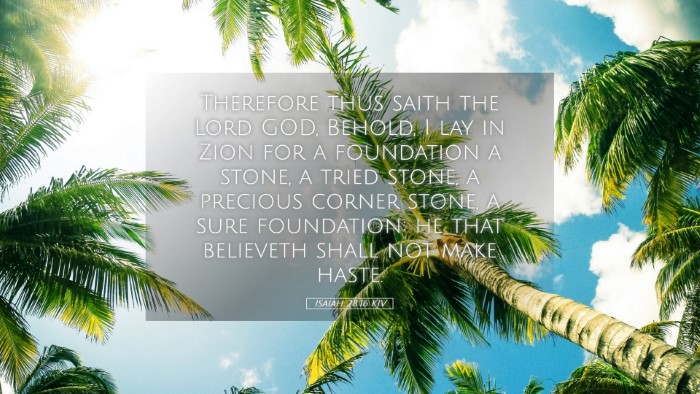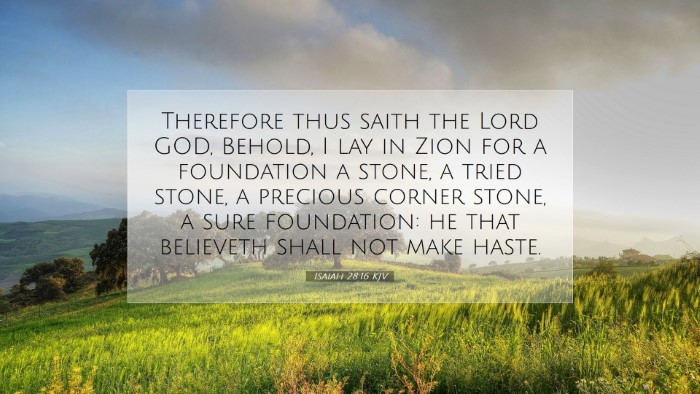Commentary on Isaiah 28:16
Verse: "Therefore thus says the Lord GOD, 'Behold, I lay in Zion a stone for a foundation, a tried stone, a precious cornerstone, a sure foundation; whoever believes will not act hastily.'"
Introduction
The verse Isaiah 28:16 stands as a pivotal declaration within the prophetic book of Isaiah, striking a chord with themes of judgment, hope, and the establishment of a secure foundation in the face of impending calamity. This commentary explores the depth of its theological implications through insights gathered from historic commentaries, aiming to illuminate its meaning for pastors, scholars, and students of the Word.
Contextual Background
This verse is situated within a segment of Isaiah that deals with the consequences of Israel's spiritual and moral failure, particularly in reliance on human wisdom and alliances. The preceding verses (especially Isaiah 28:14-15) point to the leaders of Ephraim who have made a covenant with death, showcasing their futile efforts to secure peace through worldly means.
Isaiah 28:16 introduces a stark contrast to this reliance on human schemes, presenting God's promise of a foundation that is steadfast and sure. It declares God's sovereignty over the destinies of nations and serves as an assurance of His faithfulness to those who believe.
Key Themes
- The Cornerstone: The metaphor of the cornerstone is central to this verse. In ancient construction, the cornerstone is critical: it establishes the orientation and integrity of the entire structure. Matthew Henry highlights that Christ is the ultimate fulfillment of this reference, establishing His Church upon Himself. He remarks that Jesus embodies the perfect, tried, and precious stone upon which believers can securely build their faith.
- Faith and Assurance: The phrase "whoever believes will not act hastily" speaks volumes about the nature of faith. Adam Clarke notes that true belief offers the assurance that one will not be driven by panic or fear, contrasting the hasty and flawed decisions made by those who do not trust in God. This emphasis encourages a steadfastness that comes through faith rather than frailty.
- God's Sovereignty: Albert Barnes elucidates the sovereign intent behind the laying of this cornerstone in Zion, indicating that despite human rebellion, God remains in control. Even in judgment, His covenant and promise of restoration to a remnant provides a basis of hope amid despair.
Theological Insights
Theologically, this scripture encapsulates the duality of God's judgment and mercy. It speaks to the reality that while God must judge sin, He is simultaneously a God of provision. Isaiah 28:16 powerfully illustrates this dynamic; the stone serves as both a point of offense to those who reject it and a source of strength for believers.
Matthew Henry further emphasizes that this cornerstone serves to signify both the reliability of God's promises and the assurance of His presence through trials. For theologians, the verse is an invitation to reflect on the implications of Christ as both the foundation and the chief cornerstone for believers today.
Application for Today
- Building on the Right Foundation: In a world filled with shifting sands of ideology and morality, Isaiah 28:16 compels believers to examine their foundations. Pastors and leaders are reminded of the necessity to build their ministries and teachings on the cornerstone of Christ, ensuring that the teachings align with Scripture.
- Courageous Faith: Students and scholars alike can draw encouragement from the assurance that those who trust in God will not be put to shame. In times of uncertainty, this verse calls for a courageous faith that withstands external pressures and cultural trends.
- Hope in Judgment: The duality of judgment and hope reflected in this verse offers profound implications for modern believers. In understanding God's character as both just and merciful, congregations can cultivate a theological depth that embraces the full narrative of Scripture, acknowledging that even in discipline, there is the hope of restoration and renewal.
Conclusion
Isaiah 28:16 stands as a powerful testament to God's unwavering promise and the necessity of faith in the sovereign foundation He establishes. As the Church navigates the challenges of contemporary issues, returning to this cornerstone strengthens their resolve and clarifies their mission in a world in desperate need of hope.
In sum, this verse not only encapsulates a critical theological truth but also serves as a rallying cry for believers to hold firm in their faith, grounded in the surety of God's Word and character.


